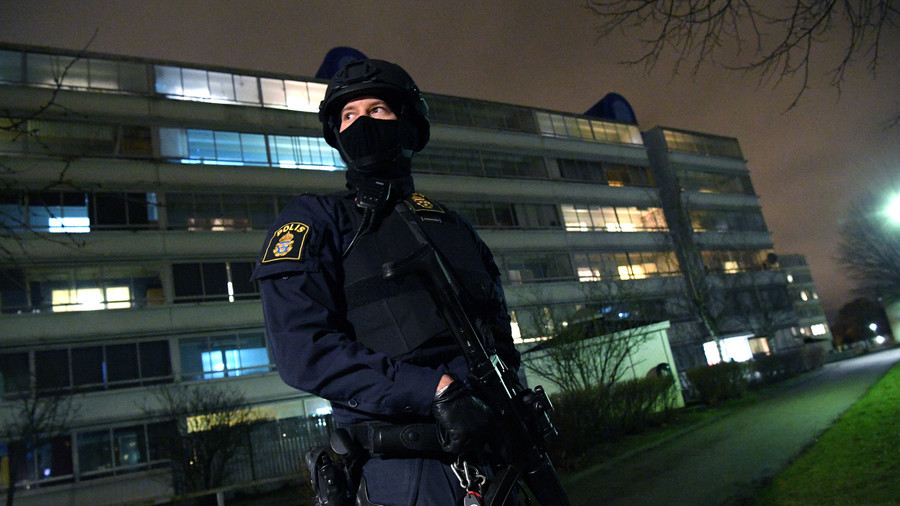Army in Swedish ghettos? How Europe tries to adapt to migration instead of solving it

Sweden’s center-left prime minister Stefan Lofven has said he may deploy military units to cut crime in immigrant-dominated ghettos – but are such grotesque adaptations to the decades-long influx actually addressing the problem?
Lofven’s words last week were a response to statistics showing that more than 300 shootings occurred in 2017, the vast majority of them in the three biggest cities. Three decades ago gun crime was front page-worthy in a country with restrictive firearms ownership laws. Now, with nearly-daily media headlines about “turf wars,” “revenge killings” and “grenade crime,” attention has turned to the disadvantaged areas where they occur. A report last year indicated that more than 90 percent of shooting suspects were from an immigrant background.
Despite international headlines, the sincerity of Lofven’s intentions to send in the personnel carriers should be taken with a pinch of salt. The former unionist’s rhetoric has been consistently tough on crime, and his minority government faces a battle for re-election against resurgent center and nativist parties later this year.
No comments:
Post a Comment